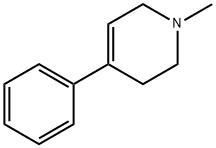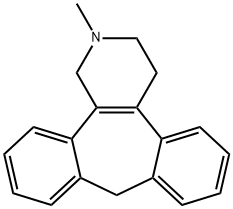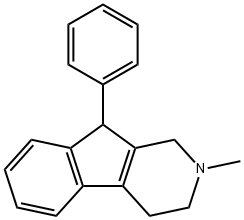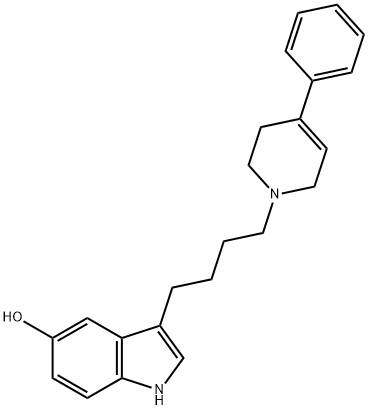M0018853
1-METHYL-4-PHENYL-1,2,3,6-TETRAHYDROPYRIDINE , >95% , 28289-54-5
CAS NO.:28289-54-5
Empirical Formula: C12H15N
Molecular Weight: 173.25
MDL number: MFCD00006120
EINECS: 248-939-7
| Pack Size | Price | Stock | Quantity |
| 50mg | RMB608.00 | In Stock |
|
| 250mg | RMB1932.80 | In Stock |
|
| 1g | RMB4446.40 | In Stock |
|
| others | Enquire |
Update time: 2022-07-08
PRODUCT Properties
| Melting point: | aprox. 36°C |
| Boiling point: | 128-132 °C12 mm Hg(lit.) |
| Density | 1.001±0.06 g/cm3(Predicted) |
| storage temp. | Inert atmosphere,Room Temperature |
| solubility | Chloroform (Slightly), Dichloromethane (Slightly), Ethyl Acetate (Slightly) |
| form | Solid |
| pka | 8.66±0.40(Predicted) |
| color | Pale Yellow to Light Yellow |
| Merck | 13,6319 |
| Stability: | Stable. Incompatible with strong oxidizing agents. |
Description and Uses
1-Methyl-4-phenyl-1,2,3,6-tetrahydropyridine is a dopaminergic neurotoxin that reportedly causes a severe and irreversible Parkinsonian condition in humans and monkeys.
Safety
| Symbol(GHS) |   GHS08,GHS06 |
| Signal word | Danger |
| Hazard statements | H370-H301 |
| Precautionary statements | P264-P270-P301+P310-P321-P330-P405-P501-P260-P264-P270-P307+P311-P321-P405-P501 |
| Hazard Codes | T |
| Risk Statements | 25-39/23/24/25 |
| Safety Statements | 45 |
| RIDADR | UN 2811 6.1/PG 2 |
| WGK Germany | 3 |
| RTECS | UT8358900 |
| HazardClass | 6.1(b) |
| PackingGroup | III |
| Hazardous Substances Data | 28289-54-5(Hazardous Substances Data) |
| Toxicity | Human toxicity originally discovered when it was an unexpected by-product from the illicit synthesis of a heroin substitute (i.e., meperidine analog). Currently used experimentally as the primary animal model for the study of Parkinson’s disease. MPTP is a neurotoxicant that is activated to 1-methyl-4-phenylpyridinium ion (MPP1) by the actions of monoamine oxidase B located in the mitochondria of brain astrocytes. The MPP1 is then transported into dopamine, and to a lesser extent, other monoaminergic neurons. Once inside these dopamine neurons in the substantia nigra, it destroys these neurons by mechanisms that may involve an oxidative cascade and/or inhibition of electron transport. Intoxication causes a parkinsonism syndrome almost identical in signs and symptoms to Parkinson’s disease, including rigidity, bradykinesia, tremor, and postural instability. In the event of known ingestion, immediate (but not delayed) administration of a monoamine oxidase inhibitor (especially one selective for MAO-B like deprenyl) and dopamine uptake inhibitor can be therapeutic. |





